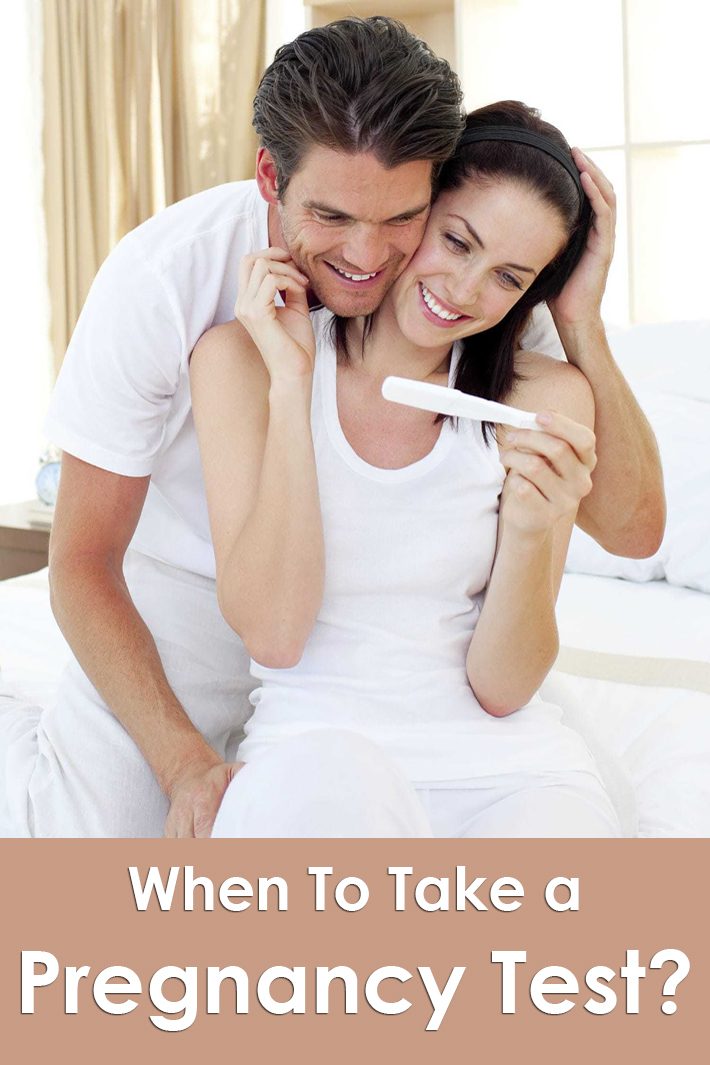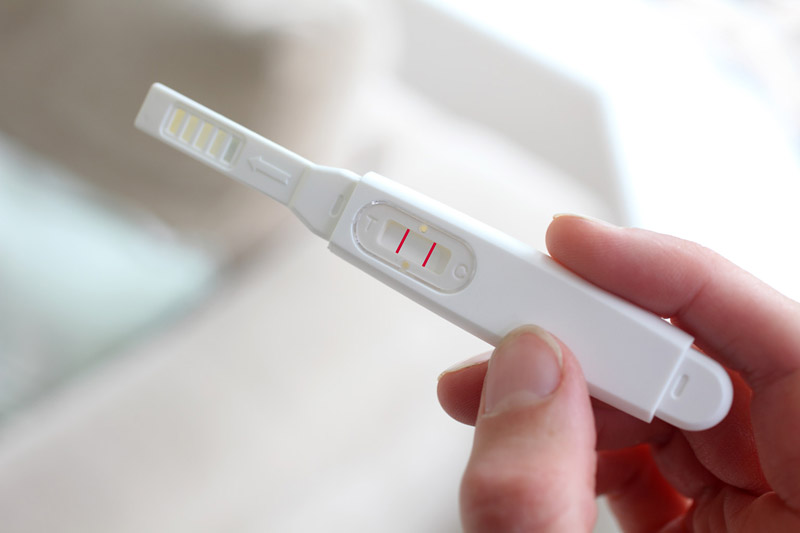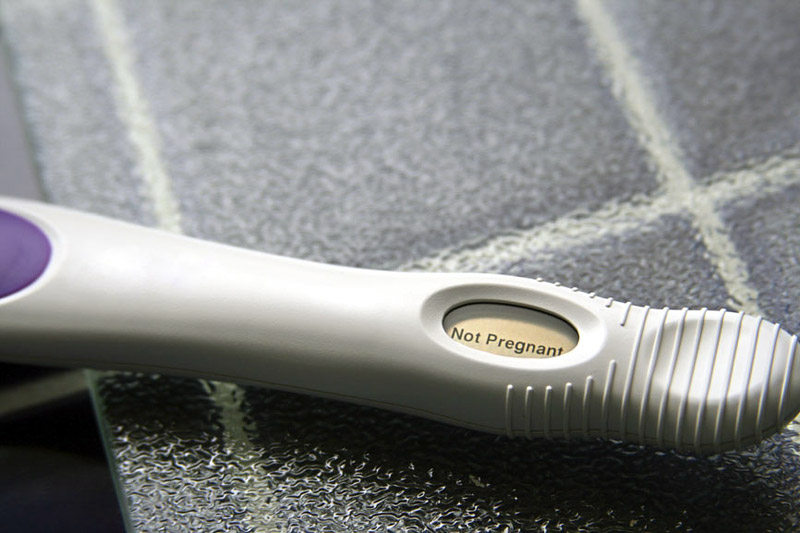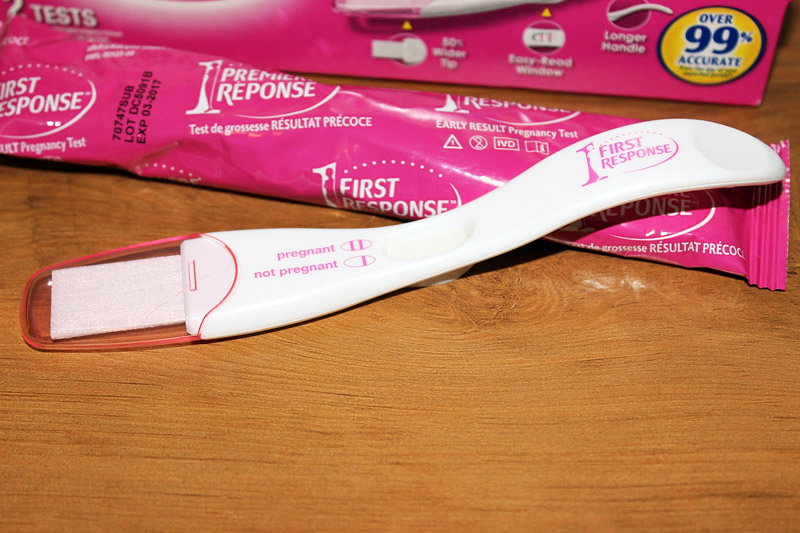
For many women, the decision to take a pregnancy test is a major source of anxiety during the two-week wait. You’re probably dying to know if this month will be the month you get your big, fat positive. You may feel tempted to take the test before your period is late, especially if you have early pregnancy signs.
But taking the test early may come up negative, even if you are pregnant. How do you decide when to resist before you pee on a stick?
The Best Time to Take a Pregnancy Test
The best time to take a pregnancy test is after your period is late. This will help you avoid false negatives and the false positives of very early miscarriages. If you’re not already keeping a fertility calendar, proper pregnancy test timing is a good reason to start one.
If your cycles are irregular or you don’t chart your cycles, don’t take a test until you’ve passed the longest menstrual cycle you usually have. For example, if your cycles range from 30 to 36 days, the best time to take a test would be day 37 or later.
Something else to consider is whether you know if your period is even late. According to the FDA’s website, out of every 100 women, 10 to 20 will not get a positive pregnancy test result on the day they think is just after their missed period, even if they are pregnant.
Even tests labeled for early pregnancy detection can’t accurately detect a pregnancy before your period is late.
Understand How Pregnancy Tests Work

Knowing how these tests work can help you understand when to take them. The tests detect the pregnancy hormone, human chorionic gonadotropin (hCG), in your urine. Some tests also detect a variation of this hormone, known as hyperglycosylated hCG (H-hCG).
The regular hCG is produced only after an embryo implants into the endometrium. H-hCG begins to be released earlier, some time after fertilization.
Levels of Pregnancy Hormones and Pregnancy Tests
When pregnancy tests tell you how much hormone they detect, they usually tell you how much hCG the test requires. A woman’s level of H-hCG, though, is typically higher than hCG.
If a pregnancy test detects H-hCG, you’re more likely to get a positive result early. If a pregnancy test is not sensitive to H-hCG, and only detects regular hCG, getting an early positive result is less likely. The great majority of pregnancy tests on the market, unfortunately, are not great at detecting H-hCG.

Understanding How Early Result Pregnancy Tests Work
Early results tests promise results three or four days before your missed period. These tests assume a 14-day luteal phase, the time between ovulation and when you get your period. The problem is that you may have a shorter or longer luteal phase.
If your luteal phase is usually 12 days, four days before your missed period would be nine days after ovulation. That’s way too early to test. For you, taking the test four days before your missed period would be pointless.
If you have a luteal phase of 15 days, four days before your missed period is 12 days after ovulation. You still may not have enough hormone that early, but you’ve got a better chance than someone with a shorter luteal phase.
If you’ve have had an hCG trigger shot like Ovidrel, then you should not take an early pregnancy test. An early test may detect the remains of the fertility medication.
But What About the 99 Percent Accuracy?

If you read the instructions carefully, they are promising 99 percent accuracy on the day of your missed period—and not for early results. If you expect your period on Wednesday, Thursday would be the day of your missed period.
Surprisingly, these promises of 99 percent accuracy may not be true. In research studies, where they compared how much hCG the test claimed to detect and how much it actually detected, the tests were only 46 percent to 89 percent accurate.
In one study, pregnancy tests indicated a positive result only 80 percent of the time on day 28 of the woman’s menstrual cycle.
Pros and Cons of Taking a Pregnancy Test Early
If you still feel tempted to take a pregnancy test early. Consider the pros and cons.
Pros:
- Very small chance of getting a positive result, relieving some two-week wait stress
Cons:
- Good chance of getting a false-negative
- Feelings of disappointment if you get a negative result
- Loss of cash (Tests cost $1 to $18 per test)
- If positive, possibility of detecting an early miscarriage you may have missed if you hadn’t tested early
- Not accurate with hCG trigger shots such as Ovidrel
The Best Early Pregnancy Test: Which Brand Should You Buy?

If you understand the reasons why it isn’t advised, but you want to take an early pregnancy test anyway, which one should you buy?
According to the research, the very best early pregnancy test on the market now is The First Response Early Result, or, as it’s sometimes abbreviated as on fertility forums, the FRER. This is their manual test, not the digital one, which is actually slightly less accurate.
This test is the only pregnancy test who has clearance from the FDA to say it can detect pregnancy hormones six days before your missed period. That is five days before your period is due.
How accurate is it that early? Here are the results from one study:
- One day past your expected period: detected 100 percent of pregnancies
- On the day of your expected period: 96 percent of pregnancies detected
- On the day before your expected period: 93 percent of pregnancies detected
- Two days before your expected period: 81 percent of pregnancies detected
- Three days before your expected period: 68 percent of pregnancies detected
- Four days before your expected period: 42 percent of pregnancies detected
- Five days before your expected period: 33 percent of pregnancies detected
- Six days before your expected period: 25 percent of pregnancies detected
How do these statistics compare to other brands?
According to this same study, E.P.T manual tests (not the digital one) detected only 53 percent of pregnancies on the day of a woman’s expected period.
The First Response Early Results test was more accurate three days before a woman’s expected period than E.P.T.’s test was on the day of the expected period.
The Bottom Line on Taking an Early Pregnancy Test
If you feel as if you just can’t resist, carefully consider how you’ll feel if the results are negative. If a negative test doesn’t bother you, and you have cash to spend on pregnancy tests, go ahead. If a negative result is going to make your heart ache or if you’d rather not waste money on extra tests, then wait until you’re late.





Leave a Reply